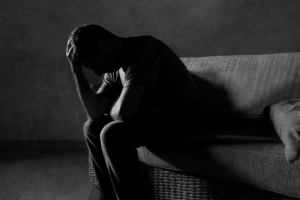What is Corrections Fatigue and How to Help
Public Safety staff in the United States Prison System have a thankless job and a wildly underappreciated stress level. They experience a perfect storm of operational and traumatic stressors that affect their mental wellness, relationships, and ability to feel fulfillment and joy. Some studies say Corrections Officers have a rate of post-traumatic stress disorder rivaling even our overseas military veterans. This corrections officer stress is often called Corrections Fatigue, which understates the serious and often tragic toll this occupation takes on penal system employees.
The Plight of Inner-Prison Law Enforcement
The media likes to dramatize the gritty lives within a prison. And in such stories, corrections officers are usually portrayed as cruel authoritarians or, at best, detached and unsympathetic bystanders. But this highlights how little we understand about corrections officer stress. The reality is that spending your working life within arm’s reach of society’s criminals is even more daunting than imaginable.
Inmate violence is rampant. Corrections Officers get injured so often that over half say they’ve witnessed co-workers getting brutally attacked. As many as 25% of prison staff regularly experience violent threats, extending to their families. And female COs report verbal sexual abuse, as well as haunting threats by inmates who promise to find them after their incarceration.
Even when Correction Officers themselves aren’t at risk, they still have to deal with other incidents within the prison. In addition to prisoner assaults, suicides, and COVID-19 deaths, most COs have also encountered a dead or dying inmate or those recently sexually assaulted or beaten.
COs face these critical incidents and other workplace challenges like understaffed and overcrowded facilities, which require them to work overtime shifts, causing chronic sleep deprivation. And like most law enforcement, there’s an unsupportive “grin and bear it” culture that makes it difficult to ask for help or make changes to their environment.
Correctional Officers, like other public safety professionals, adopt survival techniques that impact their personality. They become unable to show emotions, are hyper-vigilant, and need to be in control at all times. While this may be necessary to do the job, it isn’t easy to dissociate. It can become hard to answer a spouse who asks, “how was your day,” or even go to the grocery store for fear you’ll see people who knew you on the inside. Corrections Officers also experience very high divorce rates and high rates of sleep disorders, physical and mental health issues, and, tragically, occupational suicides.
Fighting PTSD and Corrections Fatigue
Building awareness and empathy for Corrections Officers is an important step in a positive direction. They need available mental health counseling resources, a more supportive workplace structure, realistic staffing practices, and better pay. Some organizations, such as Desert Waters Correctional Outreach, provide online resources and publications about these issues. Culturally competent psychology professionals, like The FMRT Group, provide industry-specific mental wellness training and support to those suffering from Corrections Fatigue. At the same time, other firms focus on researching inner prison stress conditions and advocating for changes to our prison system. Changes can happen with these types of collaborative efforts within the industry and appropriate professional assistance.
The most important thing you can do for someone experiencing Corrections Fatigue is to help them realize it is normal and they’re not alone. This exhaustive stress level is a very common condition among inner-prison staff. Utilizing the resources and mental wellness options available will help them reclaim their health and sense of fulfillment.
https://nicic.gov/projects/suicide-in-corrections
https://nicic.gov/projects/suicide-in-corrections
https://www.masslive.com/politics/2016/01/high_suicide_rates_plague_mass.html








